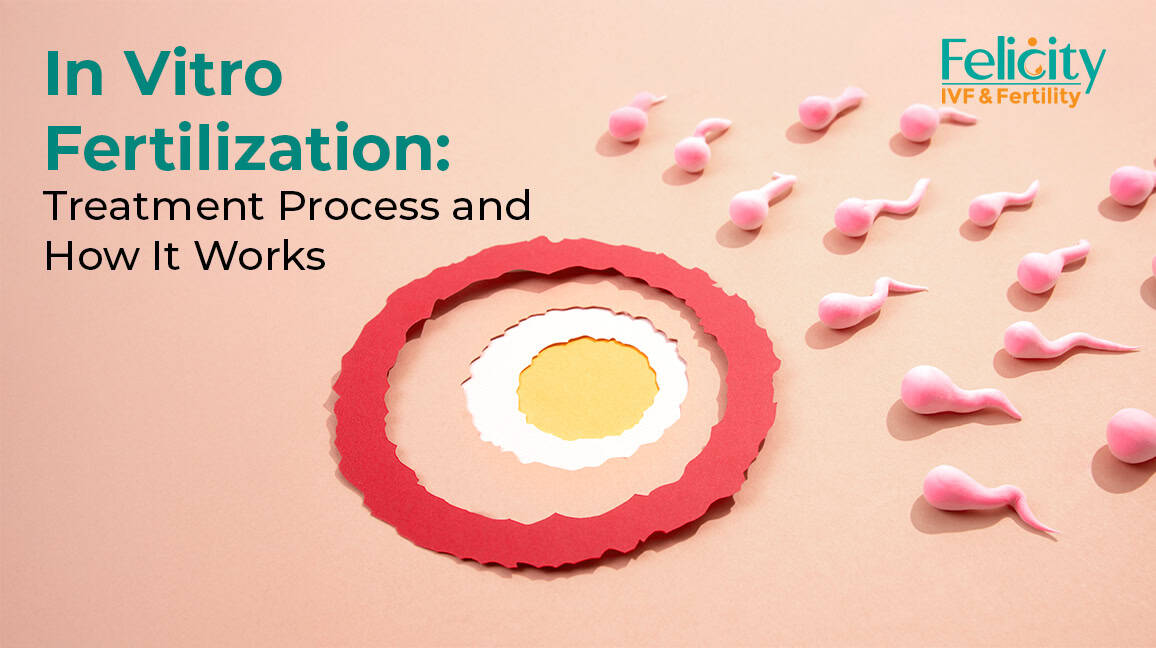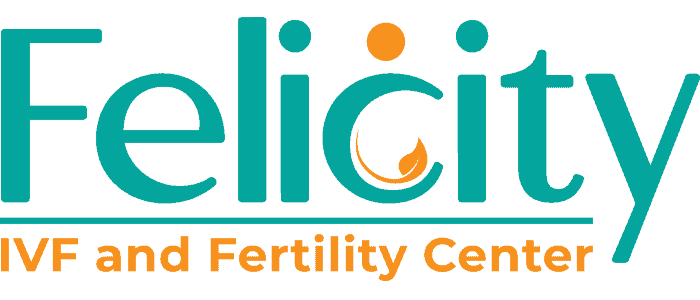In Vitro Fertilization: Treatment Process and How It Works

When couples deal with infertility, it is common to try in vitro fertilization (IVF), since it is recognised globally. In IVF, doctors must perform the fertilization of the egg in a laboratory, making it more complex than the normal process of fertilization. People who find it hard to conceive naturally are given hope by IVF. Since reproductive problems in males or females may limit having children, IVF gives parents another way to become parents.
What is In Vitro Fertilization (IVF)?
Through in vitro fertilization, a doctor mixes the sperm and egg outside the body in special conditions. When the embryo is fertilized, it is moved into the woman’s uterus so pregnancy can take place. Some people try IVF as a last resort when drugs or surgical treatments are unable to help them conceive.
IVF treatment begins by growing the eggs in the ovaries, taking out the eggs, fertilizing them, and putting the embryos back inside the uterus. Because IVF is accessible and the latest clinics are present, Hyderabad offers help to many couples.
How Does IVF Treatment Work?
There are different important steps involved in the IVF treatment process. All phases play an important role in the procedure, so it is necessary to watch and monitor them closely for the best results. I want to explain how IVF works in a step-by-step manner.
- Ovarian Stimulation: In the first stage of IVF, medications are given to make the ovaries produce several eggs. The doctor uses hormones to tell the ovaries to create more eggs each month, not only the standard one.
- Monitoring the Eggs: At this time, healthcare providers watch the eggs’ development with the help of ultrasounds and blood tests. The information determines the most suitable day for the doctors to carry out the egg retrieval.
- Egg Retrieval: After the ripening of the eggs is confirmed, they are retrieved in a short surgical procedure. The eggs are gathered from the ovaries after the woman is sedated, and a needle is used for the task.
- Fertilization: Researchers fertilize the eggs gathered from the woman in the lab with sperm from the man she is with or a donor. When a man’s infertility is a concern, a method known as ICSI (Intracytoplasmic Sperm Injection) is used to transfer a single sperm into an egg.
- Embryo Development: For several days, the team observes the eggs after they have been fertilized as they turn into embryos.
- Embryo Transfer: The last part of the IVF treatment is transferring embryos into the woman’s uterus.
What Are the Key Factors for IVF Success?
While IVF can produce positive results often, the outcome varies depending on some factors. These include:
- Age: How old the woman is matters a lot in whether IVF is successful. The better and greater number of eggs younger women have is what usually gives them an advantage in trying to conceive.
- Egg Quality: How suitable the eggs are for use is essential since that directly determines the outcome.
- Sperm Quality: For IVF to be successful, sperm should be plentiful and swim well. If the problem is male infertility, specialists may use ICSI.
- Embryo Quality: The quality of the embryos formed during fertilization has a major impact on having a successful pregnancy.
What Are the Benefits of IVF?
When other ways of treating infertility fail, IVF is especially helpful to couples who need help. One of the important advantages is:
- High Success Rates: It is more likely that IVF will succeed than other fertility treatments, mainly for women who are under the age of 35.
- Control Over Timing: IVF gives people the opportunity to schedule their pregnancy depending on what works best for them, especially when health or lifestyle is a factor.
- Genetic Testing: With PGT (pre-implantation genetic testing), embryos can be checked for genetic problems before they are put into a woman’s uterus.
- Use of Donor Eggs or Sperm: IVF blends well with the donation of eggs or sperm when the couple have problems linked to egg or sperm quality.
What Are the Risks and Challenges of IVF?
Even though IVF is very beneficial, you should understand the possible risks and difficulties linked to it. Examples of them are:
- Multiple Pregnancies: IVF results in higher chances of having more than one fetus, which may cause extra risks for everyone involved.
- Ovarian Hyperstimulation Syndrome (OHSS): If the ovaries react to the fertility drugs too much, it can lead to Ovarian Hyperstimulation Syndrome (OHSS) and give rise to some problems.
- Emotional and Financial Stress: The process of IVF is hard on a person because it is demanding and tiring mentally as well as physically.
How to Choose the Right IVF Treatment in Hyderabad?
It is very important to pick the right IVF treatment for a successful pregnancy. It is important to choose a fertility clinic in Hyderabad that supplies detailed care and help from experts throughout IVF treatment. Look for:
- Experienced Specialists: Check that the clinic provides medical help from specialists who are knowledgeable and trained in the treatment they provide.
- State-of-the-Art Technology: Top IVF centres rely on the most advanced technology to help give the patient a good chance of success.
- Personalised Care: For every IVF treatment, the doctor should adapt the plan to the particular needs of the couple.
Felicity: Trust the Experts for Your IVF Journey
In vitro fertilization has given hope to millions of couples facing problems with infertility. The use of ovarian stimulation together with egg retrieval, fertilization, and embryo transfer is known to be a successful method of helping patients become pregnant. A successful IVF procedure can be affected by a person’s age, the health of the eggs, and the growth of the embryo.
It is important for those wishing to undergo IVF in Hyderabad to find the best fertility centre. At Felicity IVF & Fertility Clinic, we give you advanced IVF options, experienced doctors, and personalised care as you plan to become parents.
FAQs
The key factors for IVF success include the woman’s age, egg quality, sperm quality, and embryo quality. These factors greatly influence the chances of a successful pregnancy and should be carefully considered during IVF treatment.
Some risks of IVF include multiple pregnancies, ovarian hyperstimulation syndrome (OHSS), and emotional or financial stress. It’s essential to discuss these potential risks with specialists before proceeding with the IVF treatment.
To choose the best IVF treatment in Hyderabad, look for clinics with experienced specialists, state-of-the-art technology, and personalised care. These factors are essential for successful chronic kidney disease treatments.
